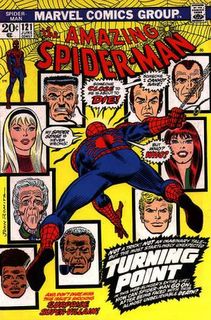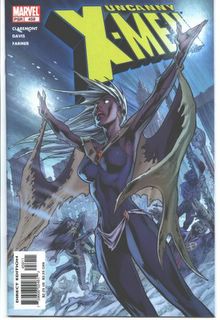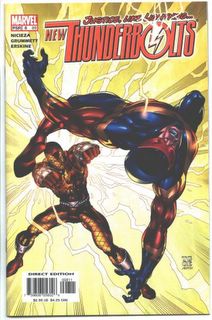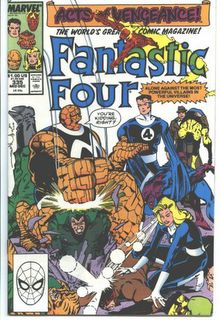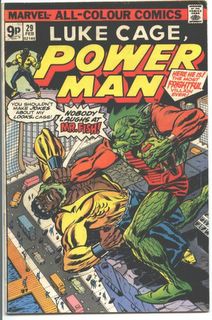Those New Marvels: A Complete Guide
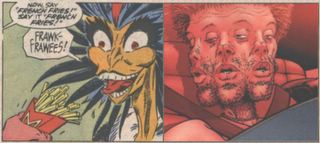
Bird Brain or Ugly John - Which one's your favourite?
New Defenders
Half-hearted attempt to relaunch fading non-team by stuffing it with the least popular members of the original X-Men. Put out of its misery by the launch of X-Factor, but not before a fair proportion of its vast cast were turned into limestone. Regrettably, this included neither Angel or Iceman.
New Super Spider-Man With the Superheroes
Marvel UK folded failed X-Men vehicle "The Superheroes" into Spider-Man Comics Weekly, memorably edited by future Pet Shop Boy, "Nebulous" Neil Tennant. It was published in Titans format, which meant two American pages were fitted horizontally onto one side of A4. This gave UK readers the opportunity to develop an encyclopaedic knowledge of the early works of Don Heck far out-stripping our US contemporaries. Sadly, the resultant eye-strain caused such damage that we were all forced to wear hideous black-rimmed spectacles which made pre-bite Peter Parker look like Flash Thompson. We didn't get many dates after that, but, hey, I'm not bitter.
New Mutants
Marvel's first regular X-Men spin-off. The early issues were undistinguished but promising. Then came its creative peak, when Chris Claremont and Bill Sienkiewicz creates some of best comic books of the eighties. Middle age rot began to spread. It had collapsed into senescence by issue #60 - it was in effect terminated by new writer Louise Simonson, who destroyed in two pages what Claremont had spent five years developing. If you don't believe me, just look at Bird Brain (above). Apparently Cable turned up near the end, but I was long gone by that point. We were promised they would be the next generation of X-Men, which didn't quite turn out to be the case. However, I am told that most of the cast are still at Xavier's, working in the Catering Department.
New Warriors
Youthful nineties super-group that didn't exactly soar. Vance Astro proved that being destined to become a mighty 27th century starship captain doesn't mean you can't spend your teenage years being a snivelling annoyance. Nova alarmingly entered the third decade of his adolescence, surely indicating the possibility of a hormonal disorder. And TV-cutie Firestar angsted endlessly about how using her microwave powers would make her infertile. Look on the bright side, Angelica, at least you can melt your own cheese on camping trips.
New X-Men
Utterly inconsistent Grant Morrison run. It ranged from the fabulous (Genosha destroyed), the scary (Cassandra Nova), the predictable (killing Jean Grey), the unexpected (Hank McCoy using Kitty Litter), the bizarre (Magneto acting like a tosser) and the risible (see Ugly John, above). A verdict has still not been returned on this one and perhaps it never will be.
New X-Men: Academy
Fourth generation Young-Mutants-In-Love book, introduced by Joe Quesada as part of his masterplan to streamline Marvel's X-books down to 259 per month. A welcome chance to see recycled old Generation X plots.
New Thunderbolts
Habitual serial killer Marvel Editorial Board takes a chance to rehabilitate itself by relaunching T-Bolts, brutally butchered in its prime. But will they reconsider when they cotton onto the fact that there's nothing new about this series? Fabian Nicieza sleeps uneasily at night, never knowing when the knife in the dark will come.
New Avengers
Bendis and Finch blotted their copybook by slaughtering various Z-list Avengers. In the eyes of many, the fact that this book is clever, funny and beautiful is outweighed by Hawkeye's unlikely (and, surely, temporary) demise. It may have a long-term effect of destabilising Amazing Spider-Man by moving Peter into Avengers Mansion. The sight of "I'm the best there is at what I do, bub" Wolverine has me considering whether to fly to New York and happy-slap Joe Quesada while yelling "Enough, I stopped buying Wolverine's book in an attempt to get away from the tedious, over-exposed little runt."


